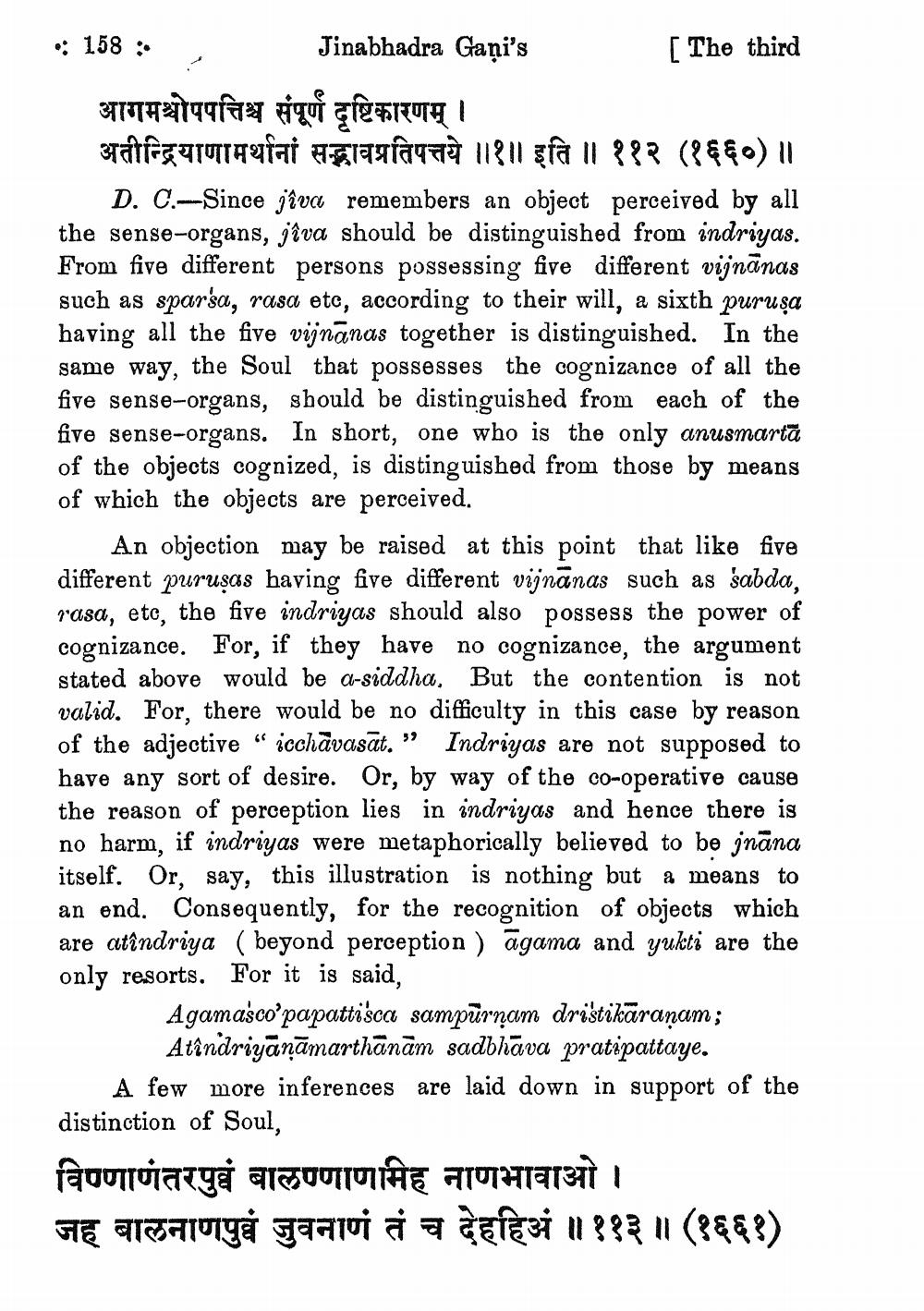________________
•: 158 : Jinabhadra Gaņi's
[The third आगमश्चोपपत्तिश्च संपूर्ण दृष्टिकारणम् । अतीन्द्रियाणामर्थानां सद्भावप्रतिपत्तये ॥१॥ इति ॥ ११२ (१६६०)॥
D. C.--Since jîva remembers an object perceived by all the sense-organs, jîva should be distinguished from indriyas. From five different persons possessing five different vijnānas such as sparsa, rasa etc, according to their will, a sixth puruşa having all the five vijnanas together is distinguished. In the same way, the Soul that possesses the cognizance of all the five sense-organs, should be distinguished from each of the five sense-organs. In short, one who is the only anusmartā of the objects cognized, is distinguished from those by means of which the objects are perceived.
An objection may be raised at this point that like five different purusas having five different vijnānas such as sabda, rasa, etc, the five indriyas should also possess the power of cognizance. For, if they have no cognizance, the argument stated above would be a-siddha. But the contention is not valid. For, there would be no difficulty in this case by reason of the adjective "icchāvasāt.” Indriyas are not supposed to have any sort of desire. Or, by way of the co-operative cause the reason of perception lies in indriyas and hence there is no harm, if indriyas were metaphorically believed to be jnāna itself. Or, say, this illustration is nothing but a means to an end. Consequently, for the recognition of objects which are atîndriya ( beyond perception ) agama and yukti are the only resorts. For it is said,
Agamascoʻpapattiśca sampurnam dristikāranam;
Atîndriyānāmarthānām sadbhava pratipattaye. A few more inferences are laid down in support of the distinction of Soul, विण्णाणंतरपुवं बालपणाणामह नाणभावाओ । जह बालनाणपुवं जुवनाणं तं च देहहिअं ॥११३॥ (१६६१)




